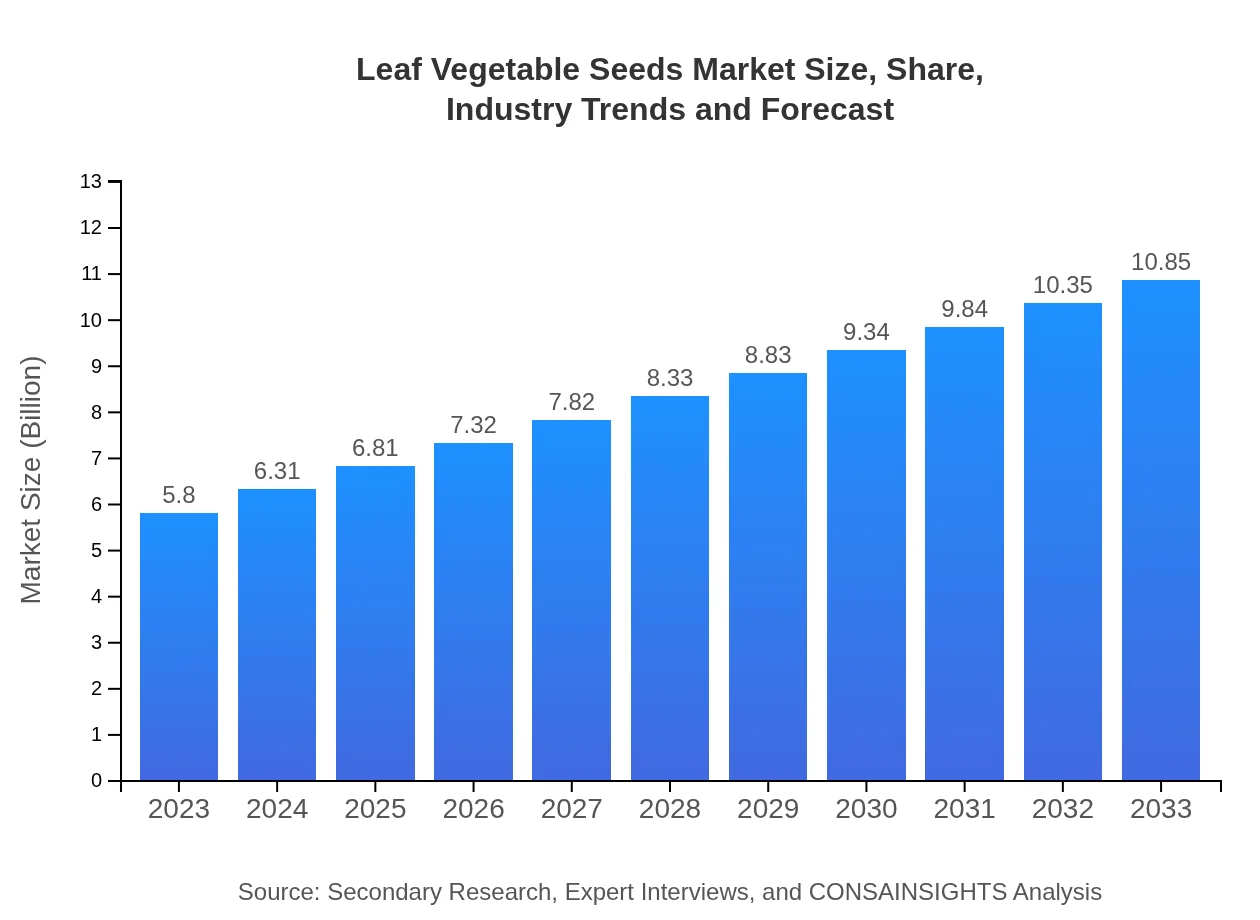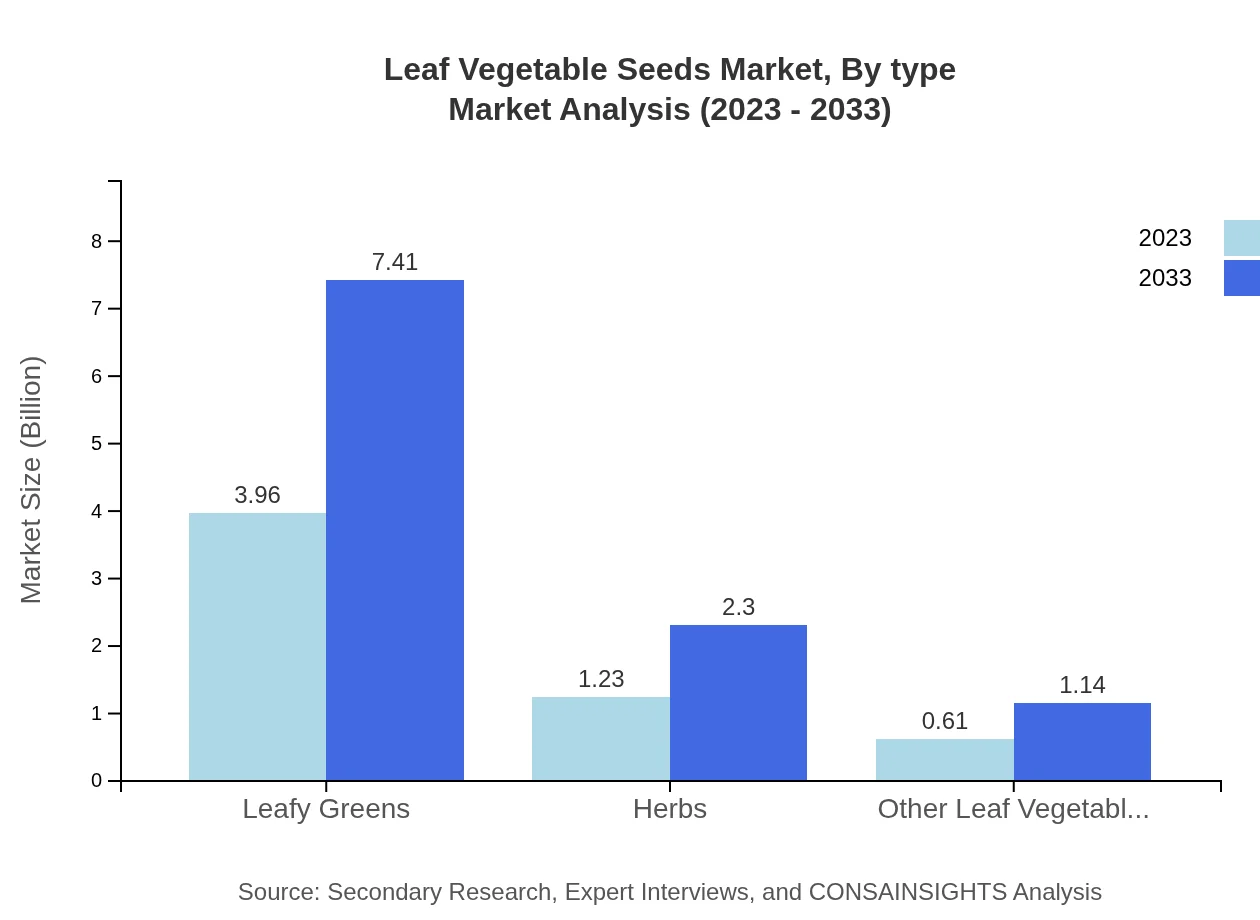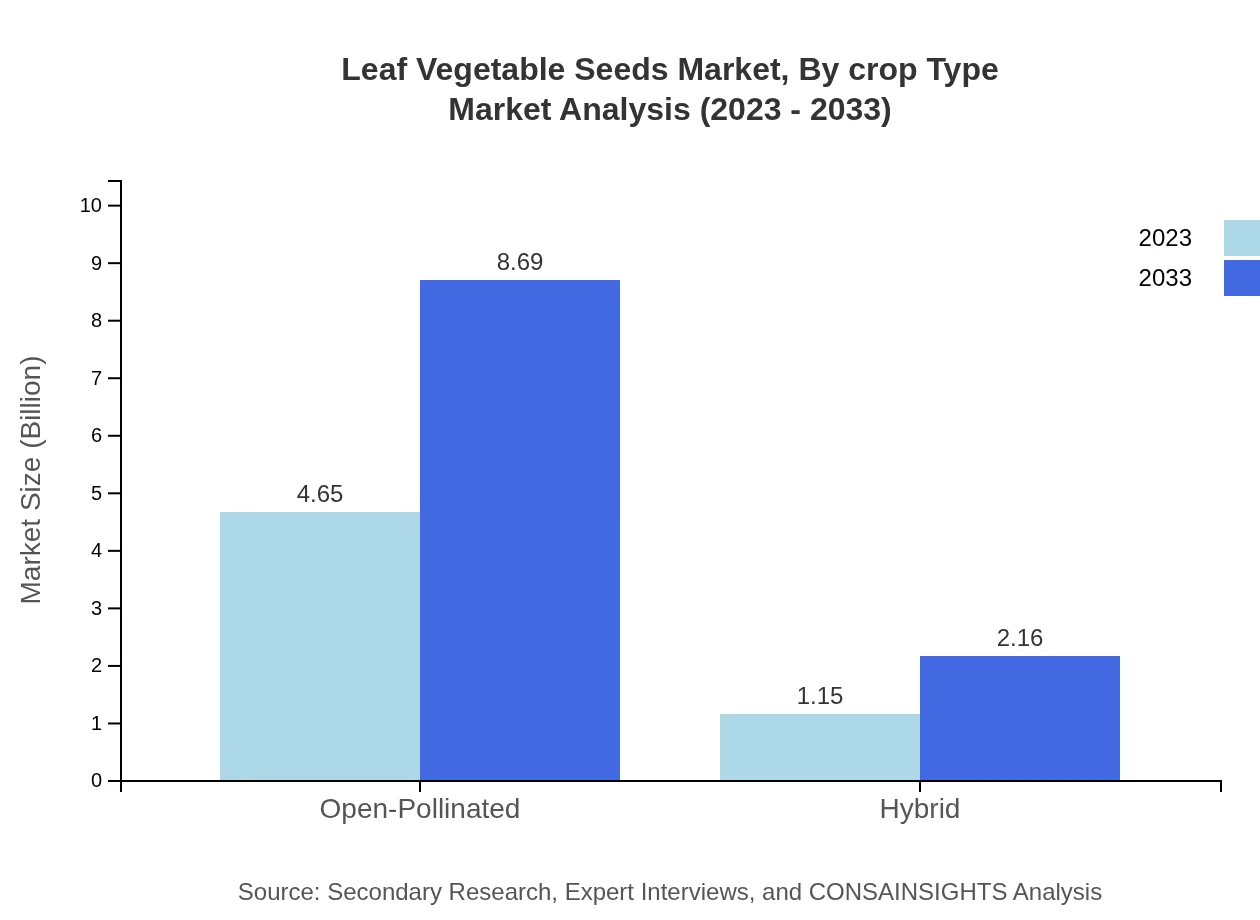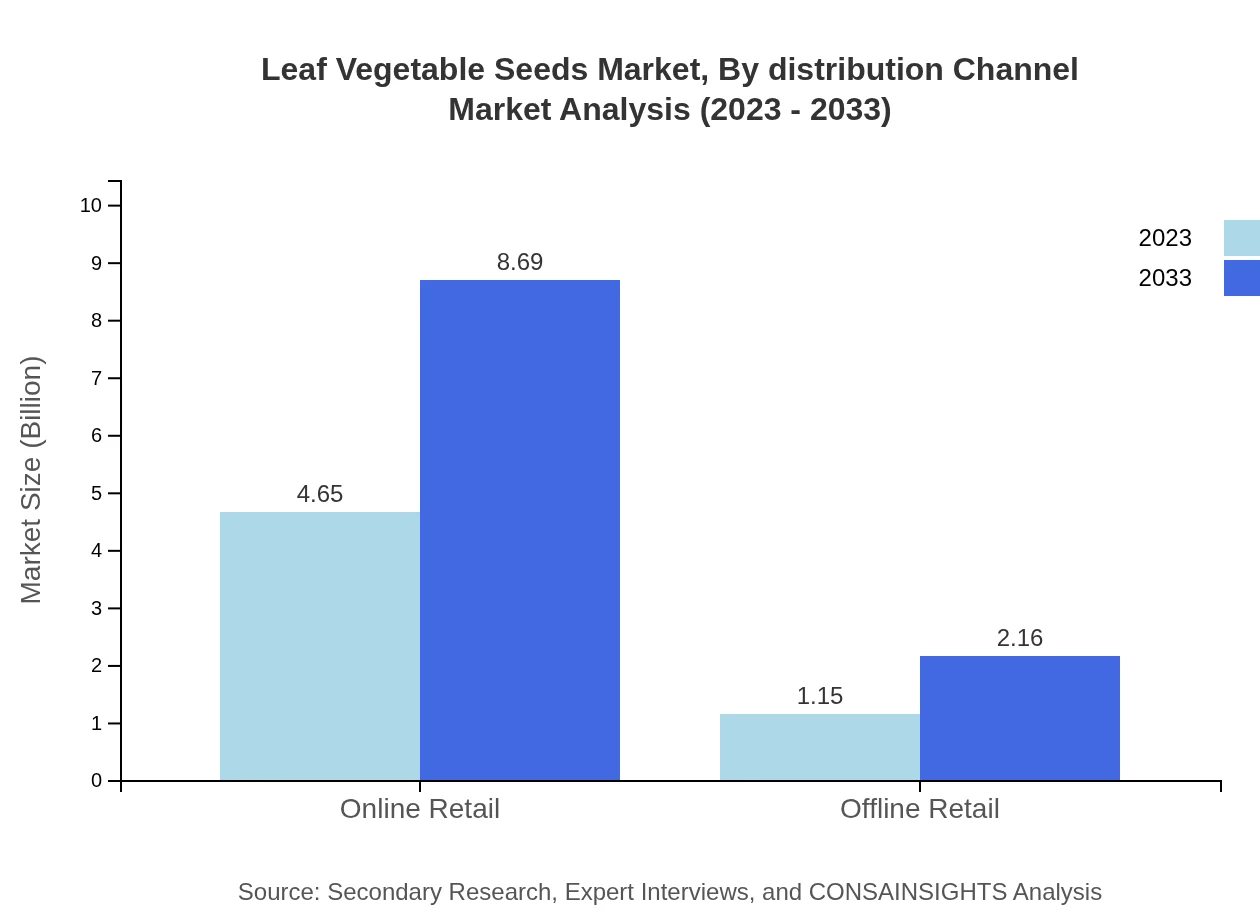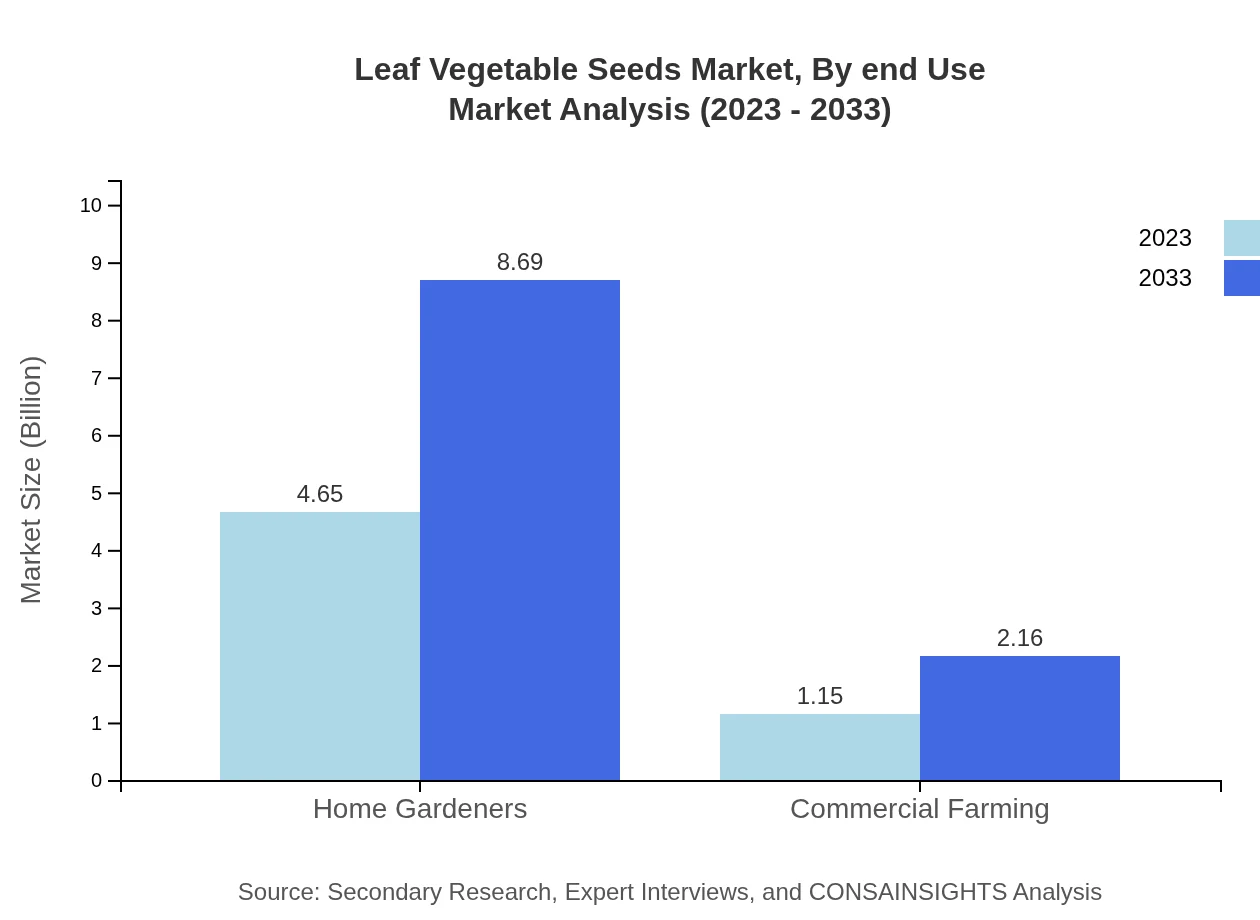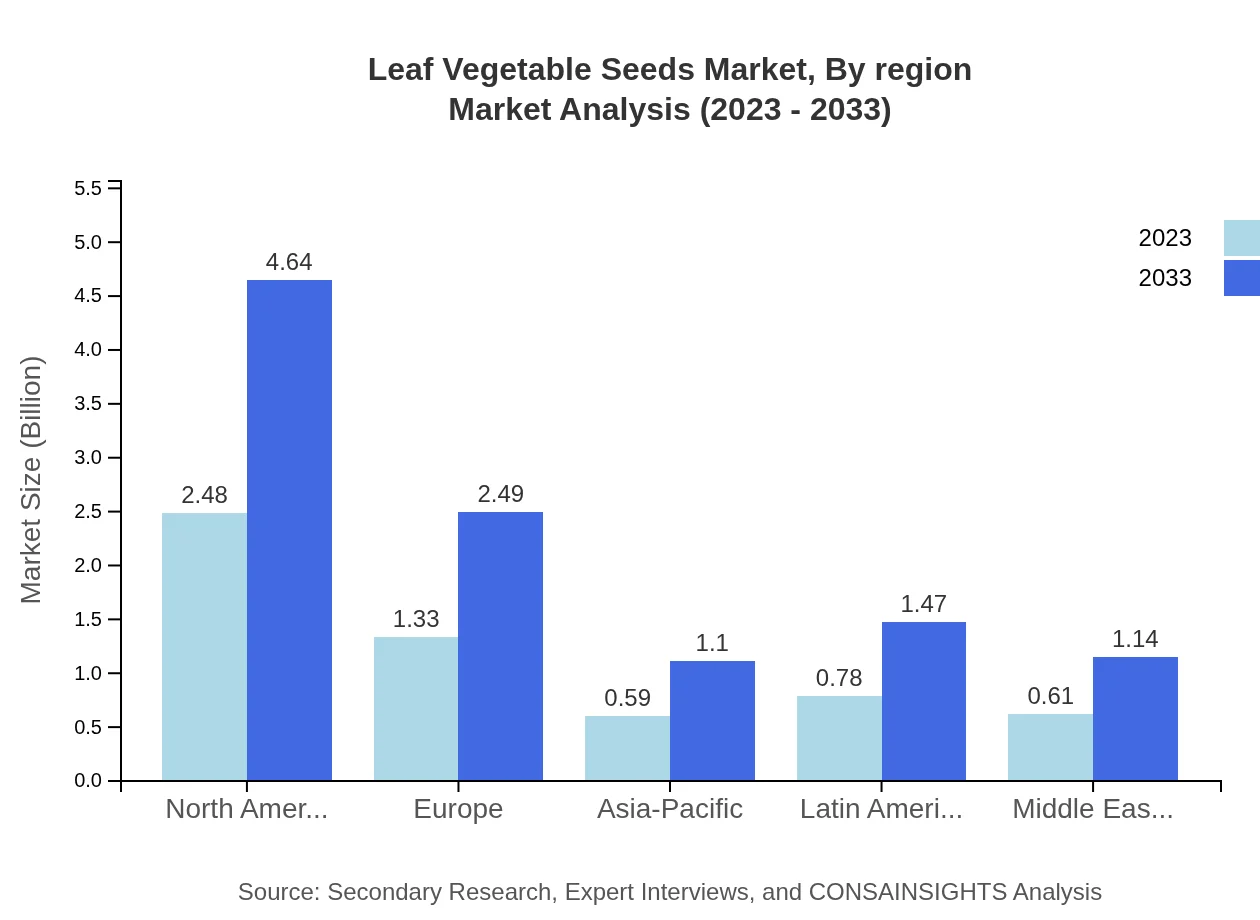Leaf Vegetable Seeds Market Report
Published Date: 02 February 2026 | Report Code: leaf-vegetable-seeds
Leaf Vegetable Seeds Market Size, Share, Industry Trends and Forecast to 2033
This market report provides a comprehensive analysis of the Leaf Vegetable Seeds market from 2023 to 2033, offering insights into market size, growth rates, trends, challenges, and opportunities across various regions and segments.
| Metric | Value |
|---|---|
| Study Period | 2023 - 2033 |
| 2023 Market Size | $5.80 Billion |
| CAGR (2023-2033) | 6.3% |
| 2033 Market Size | $10.85 Billion |
| Top Companies | Syngenta AG, Monsanto Company (Bayer AG), Bremner Farms, Rijk Zwaan |
| Last Modified Date | 02 February 2026 |
Leaf Vegetable Seeds Market Overview
Customize Leaf Vegetable Seeds Market Report market research report
- ✔ Get in-depth analysis of Leaf Vegetable Seeds market size, growth, and forecasts.
- ✔ Understand Leaf Vegetable Seeds's regional dynamics and industry-specific trends.
- ✔ Identify potential applications, end-user demand, and growth segments in Leaf Vegetable Seeds
What is the Market Size & CAGR of Leaf Vegetable Seeds market in 2023?
Leaf Vegetable Seeds Industry Analysis
Leaf Vegetable Seeds Market Segmentation and Scope
Tell us your focus area and get a customized research report.
Leaf Vegetable Seeds Market Analysis Report by Region
Europe Leaf Vegetable Seeds Market Report:
The European market size is projected to grow from 1.53 billion USD in 2023 to 2.87 billion USD in 2033. Economic support for sustainable agriculture and increased awareness among consumers about healthy eating patterns contribute to this growth.Asia Pacific Leaf Vegetable Seeds Market Report:
In the Asia Pacific region, the Leaf Vegetable Seeds market is projected to grow from 1.13 billion USD in 2023 to 2.12 billion USD in 2033. The increasing population and urbanization drive the demand for leafy greens, along with the rising trend of home gardening. Countries like China and India are witnessing a surge in the cultivation of leaf vegetables.North America Leaf Vegetable Seeds Market Report:
North America shows promising growth, with the market estimated to expand from 2.16 billion USD in 2023 to 4.04 billion USD in 2033. The rise in organic food consumption is a crucial driver, alongside the popularity of home gardening. Innovations in seed technology also play a significant role.South America Leaf Vegetable Seeds Market Report:
The South American market for Leaf Vegetable Seeds is expected to grow from 0.38 billion USD in 2023 to 0.71 billion USD in 2033. The region is increasingly adopting sustainable farming practices, fostering demand for quality seeds that support better yield and resistance to disease.Middle East & Africa Leaf Vegetable Seeds Market Report:
The Middle East and Africa market is expected to increase from 0.60 billion USD in 2023 to 1.12 billion USD in 2033. Overcoming challenges such as water scarcity through advanced agricultural techniques and seed technology is pivotal for growth in this region.Tell us your focus area and get a customized research report.
Leaf Vegetable Seeds Market Analysis By Type
The Leaf Vegetable Seeds market by type is segmented into open-pollinated and hybrid seeds. Open-pollinated seeds accounted for a significant share, valued at 4.65 billion USD in 2023, and are projected to maintain their value due to their cost-effectiveness and adaptability. Hybrid seeds, valued at 1.15 billion USD in 2023, are also witnessing growth driven by their superior yield and pest resistance.
Leaf Vegetable Seeds Market Analysis By Crop Type
In terms of crop type, leafy greens dominate the market, increasing from 3.96 billion USD in 2023 to 7.41 billion USD by 2033. Herbs represent another vital segment, expanding from 1.23 billion USD to 2.30 billion USD. Other leaf vegetables also contribute, growing moderately from 0.61 billion USD to 1.14 billion USD in the forecast period.
Leaf Vegetable Seeds Market Analysis By Distribution Channel
The market is segmented into online and offline retail channels. Online retail is projected to grow significantly, contributing 4.65 billion USD in 2023 and reaching 8.69 billion USD by 2033, attributed to convenience and wider reach. Offline retail remains pertinent, increasing from 1.15 billion USD to 2.16 billion USD.
Leaf Vegetable Seeds Market Analysis By End Use
The market for Leaf Vegetable Seeds is segmented into home gardeners and commercial farming. The home gardeners segment is robust, accounting for 4.65 billion USD in 2023, expanding to 8.69 billion USD due to the rising trend of urban gardening. Commercial farming is valued at 1.15 billion USD in 2023, growing steadily as more farmers opt for high-quality seeds.
Leaf Vegetable Seeds Market Analysis By Region
The regional analysis identifies distinct growth patterns across various areas, driven by unique agricultural practices, economic conditions, and consumer preferences. The North American region has a substantial market size, focusing heavily on innovation, while Europe emphasizes sustainability. Asia Pacific’s demographic advantages drive growth, while South America and Africa show potential due to their emerging agricultural practices.
Leaf Vegetable Seeds Market Trends and Future Forecast
Tell us your focus area and get a customized research report.
Global Market Leaders and Top Companies in Leaf Vegetable Seeds Industry
Syngenta AG:
Syngenta, a global leader in agriculture, provides a wide range of leaf vegetable seeds recognized for their high yield and disease resistance.Monsanto Company (Bayer AG):
Monsanto, acquired by Bayer AG, is known for innovative seed products and biotechnological advancements, significantly contributing to the Leaf Vegetable Seeds market.Bremner Farms:
Bremner Farms specializes in organic and specialty seeds and has established a significant presence in the Leaf Vegetable Seeds market through dedication to quality.Rijk Zwaan:
Rijk Zwaan is a Dutch seed company that focuses on developing high-quality vegetable seeds, including innovative leaf varieties tailored for diverse growing conditions.We're grateful to work with incredible clients.









FAQs
What is the market size of leaf Vegetable Seeds?
The global market size for leaf vegetable seeds is currently valued at approximately $5.8 billion. With a projected CAGR of 6.3% from 2023 to 2033, it indicates sustained growth in the sector.
What are the key market players or companies in the leaf Vegetable Seeds industry?
Major companies in the leaf vegetable seeds market include Seminis, Sakata Seed Corporation, Bayer Crop Science, and Syngenta. These firms dominate due to their extensive product offerings and strong distribution networks.
What are the primary factors driving the growth in the leaf Vegetable Seeds industry?
Key drivers include rising health awareness, increased demand for organic food, and the growth of home gardening. Additionally, innovations in breeding techniques are creating robust and high-yielding seed varieties, further stimulating market growth.
Which region is the fastest Growing in the leaf Vegetable Seeds?
The fastest-growing region for leaf vegetable seeds is North America, expected to grow from $2.16 billion in 2023 to $4.04 billion by 2033. Rapid urbanization and growing health-consciousness drive this regional growth.
Does ConsaInsights provide customized market report data for the leaf Vegetable Seeds industry?
Yes, ConsaInsights offers customized market reports tailored to specific needs, providing in-depth analysis and insights on various segments within the leaf vegetable seeds industry.
What deliverables can I expect from this leaf Vegetable Seeds market research project?
Deliverables include comprehensive reports with detailed market analysis, segment insights, competitive landscape evaluations, and regional forecasts. We also provide actionable strategies for market entry and growth.
What are the market trends of leaf Vegetable Seeds?
Current trends include the growing popularity of hybrid seeds, increased online sales channels, and environmental sustainability in farming practices. Home gardening trends are also on the rise, significantly impacting market strategies.

